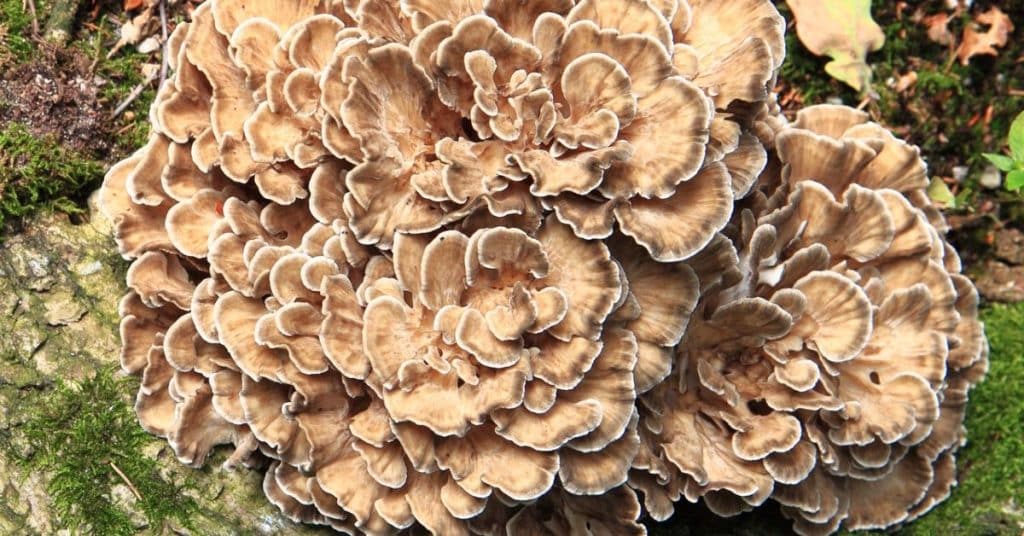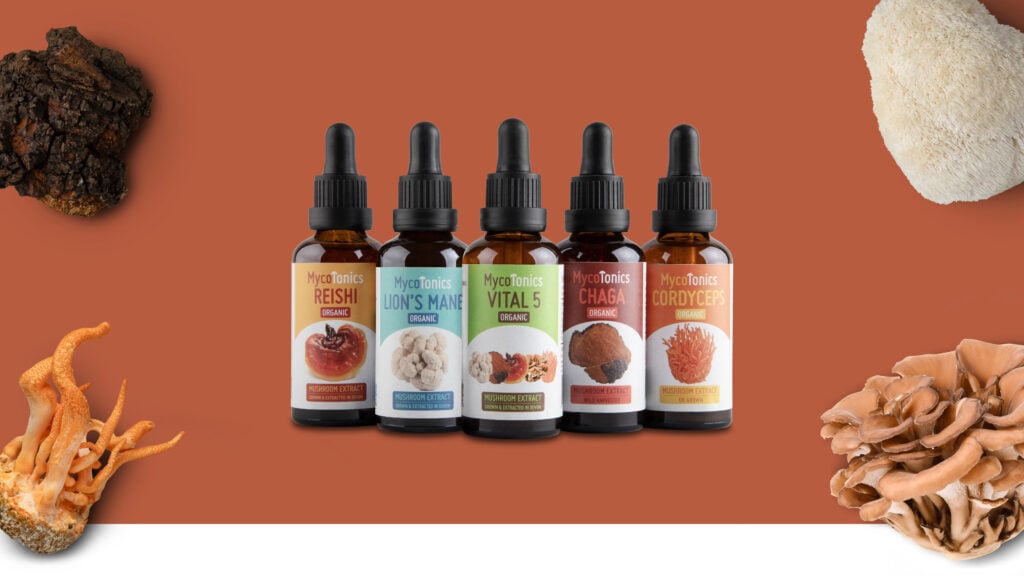Maitake mushrooms, also known as hen of the woods because they resemble the ruffled feathers of a hen on a nest, are prized culinary and medicinal mushrooms.
Traditional healers have used them for centuries, and now, modern research is uncovering their potential health benefits.
If you’re in the UK and want to try and benefit from the benefits mushrooms can offer then please have a look at our extract range called MycoTonics.
From boosting the immune system and helping fight cancer to supporting weight management and contributing to heart health and gut wellness, maitake mushrooms have a lot to offer.
Read on to learn more about maitake mushroom health benefits and how to make them a part of your daily life.
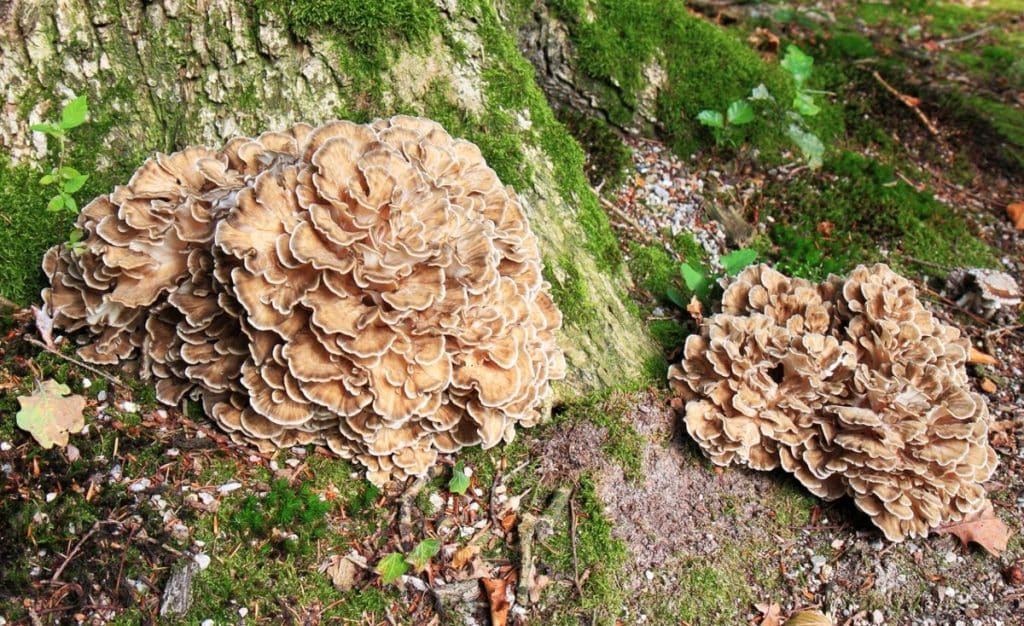
Maitake Mushroom Health Benefits
Maitake mushrooms are functional foods containing bioactive polysaccharides, antioxidants, vitamins, minerals and amino acids that provide numerous health benefits, such as:
1. Boosting Immune System Function
Maitake mushrooms are rich in bioactive compounds, particularly beta-glucans, which are known to have a positive impact on the immune system.
Beta-glucans are polysaccharides that stimulate immune responses by activating various immune cells, making them more effective at fighting infections and diseases.
Maitake mushrooms contain a specific type of protein-bound polysaccharide called D-fraction that is very effective at stimulating immune response.
In a study investigating the immune-boosting properties of maitake mushrooms, researchers found that they enhanced the immune response of normal mice.
Thus, they concluded that maitakes have the potential to help the body fight off foreign pathogens, providing protection against infectious diseases.
Another study in 2014 confirmed this and found that combining the active b-glucans in maitake mushroom extract with a-glucan-rich shiitake extract enhanced their immuno-stimulating effects.
2. Helping Fight Cancer
Beta-glucans not only boost the immune system but also have the potential to assist in the fight against cancer by interfering with the growth and spread of cancer cells.
Studies show that D-fraction aids in the fight against cancer by activating cells that attack cancer, like macrophages, T-cells, and natural killer (NK) cells.
One study using mice explored how maitake mushrooms inhibit tumor growth with promising results that suggest it could be used as part of a cancer management program.
Another 2013 study found that maitake D-fraction could potentially block the growth of breast cancer cells and promote the elimination of tumor cells during chemotherapy.
Although research is limited, the results are promising and indicate that maitake mushroom extract may have potent cancer-fighting properties.
In fact, Japan and China have used maitakes and other medicinal mushrooms for centuries to help treat cancer and even approved their use as an addition to standard cancer treatments.
3. Balancing Blood Sugar Levels
Several studies show that the polysaccharides in maitake mushrooms also play a role in regulating blood sugar levels and may help with the prevention and management of diabetes.
They do this by slowing the absorption of sugars in the digestive system, creating a gradual, steady release of sugar into the bloodstream, rather than the spike that can happen after a meal.
A 2015 study showed that Maitake extract can also help to improve insulin resistance by helping the body use more of the sugar in the blood for energy rather than storing it.
And it’s not only the beta-glucans that help to stabilize blood sugar levels. The antioxidants in maitake mushrooms also play a role.
Antioxidants help to protect cells, including the crucial insulin-producing cells in the pancreas that are more efficient at regulating blood sugar when they are healthy.
4. Lowering Cholesterol Levels
Consuming maitake mushrooms can also help reduce the risk of heart disease by lowering cholesterol levels and improving artery functioning.
Not all cholesterol is unhealthy. High-density lipoprotein (HDL) cholesterol is good and helps to keep arteries clean, while low-density lipoprotein (LDL) cholesterol is the stuff that builds up and blocks arteries.
A study using mice shows that Maitake mushrooms contain compounds that can help reduce LDL cholesterol without affecting HDL cholesterol levels.
5. Reducing Blood Pressure
High blood pressure is a common condition that places strain on heart muscles and increases the chances of having a stroke.
A 2010 study using elderly rats found that regularly consuming maitake extract helped to lower blood pressure and prevent progressive, age-related elevation of blood pressure.
Maitake mushrooms also contain potassium, an essential mineral that assists in lowering blood pressure by reducing sodium levels in the body and relaxing blood vessel walls.
6. Improving Fertility
Polycystic ovary syndrome (PCOS) is caused when the ovaries overproduce male hormones, creating small cysts and often resulting in weight gain, acne and infertility.
A 2010 study found that maitake extract was nearly as effective as some conventional treatments for PCOS and helped to induce ovulation and improve fertility.
More research is needed, but indications are that maitake extract may be beneficial as an adjunct therapy for patients who do not respond to traditional treatment with clomiphene citrate.
Insulin resistance appears to be one of the causes of PCOS, and researchers believe that maitake’s ability to lower blood sugar and reduce insulin resistance is why it’s so effective.
7. Promoting Healthy Aging and Longevity
Maitake mushrooms are also packed with antioxidants that help to protect the body’s cells from oxidative stress and the damage caused by free radicals.
Oxidation occurs continually as a result of normal body functions and external toxins and can cause oxidative stress if left unchecked, aging cells and body tissue and causing inflammation.
The antioxidants in maitake help by neutralizing the free radicals that cause oxidative stress, reducing inflammation and improving longevity.
A 2018 study evaluating the anti-inflammatory and antioxidant properties of maitakes showed that the abundant phytochemicals had anti-inflammatory activity similar to aspirin and ibuprofen.
Another study using maitake and lion’s mane mushrooms revealed that they both have neuroprotective properties and help to combat aging and prevent age-related disorders.
8. Supporting Gut Health
The gut, often called the body’s “second brain,” houses an intricate community of microorganisms that play a vital role in various aspects of our health.
From digestion and nutrient absorption to immune function and mood regulation, a balanced gut microbiome is essential for our overall well-being.
One of the ways maitake mushrooms contribute to gut health is their high dietary fiber content that nourishes beneficial gut bacteria.
Dietary fiber remains undigested in the stomach, but when it reaches the colon, it provides food for the beneficial probiotic microorganisms living there.
A study exploring the prebiotic potential of maitake mushrooms revealed that they can enhance the growth of beneficial gut bacteria, promoting a more diverse and stable gut microbiota.
9. Aiding Weight Loss
Like most other gourmet mushrooms, maitake mushrooms are low in calories, cholesterol and fat and full of beneficial compounds, making them ideal for use as part of a weight loss program.
Research suggests that maitake mushrooms may assist in weight loss by regulating appetite, boosting metabolism, regulating blood sugar and reducing fat accumulation.
As mentioned, maitake mushrooms are rich in dietary fiber that takes up space in your stomach, making you feel full and satisfied for longer.
This can help you eat less and prevent snacking, reducing your daily calorie intake.
And by helping to keep blood sugar levels stable, maitake mushrooms reduce the amount of insulin produced and allow your body to burn fat for energy between meals, aiding weight loss.
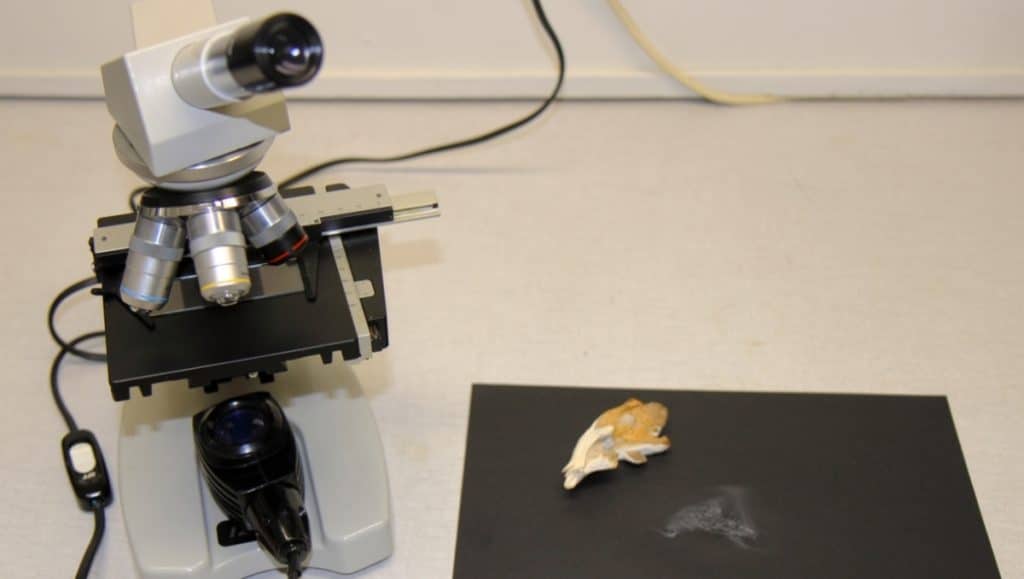
Maitake Mushroom Nutrition Facts
Like other gourmet mushrooms, maitakes are high in dietary fiber, contain high-quality protein with all the essential amino acids and are low in calories, fat and cholesterol.
A 100g serving of maitake mushrooms contains:
-
- 31 calories
-
- 6.97g carbohydrates
-
- 1.94g protein
-
- 0.19g fat
-
- 2.7g dietary fiber
Maitake is also a source of several essential vitamins and minerals, but the most notable are:
-
- 28.1mcg Vitamin D providing 140% of RDA
-
- 6.6mg Niacin (B3) providing 41% of RDA
-
- 0.24mg Riboflavin (B2) providing 19% of RDA
-
- 0.15mg Thiamin (B1) providing 12% of RDA
-
- 0.25mg Copper providing 28% of RDA
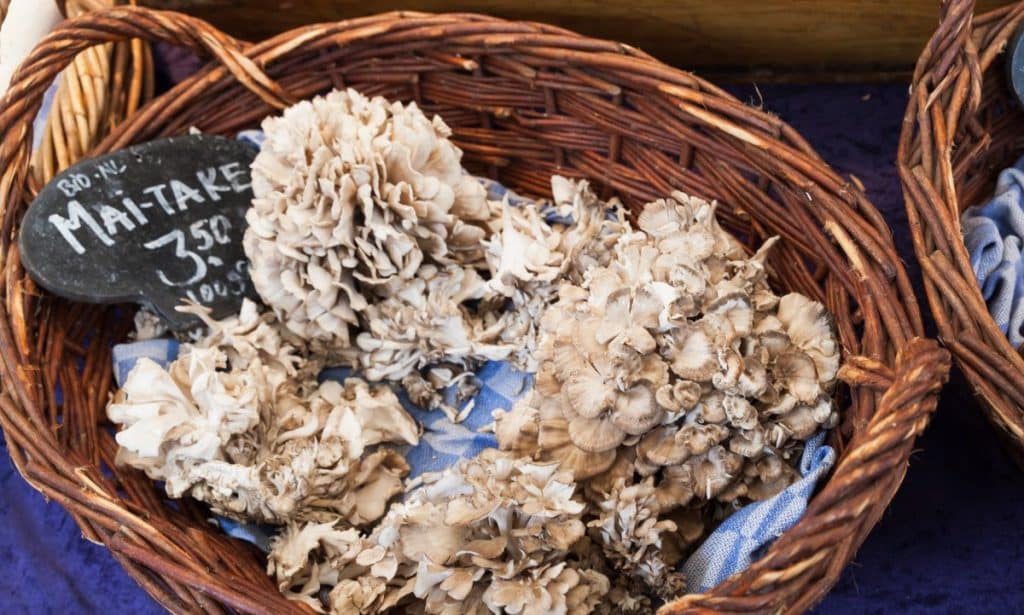
Is Maitake a Superfood?
The word superfood is a marketing term used to describe foods that provide significant health benefits due to the beneficial compounds they contain.
The Merriam-Webster dictionary defines a superfood as a food rich in compounds considered beneficial to a person’s health, such as antioxidants, fiber, or fatty acids.
Based on this definition and the numerous studies exploring maitake’s bioactive compounds and their health benefits, it’s safe to call maitake mushrooms a superfood.
Is Maitake an Adaptogen?
Both traditional healers and contemporary herbalists classify maitake mushrooms as adaptogens.
Adaptogen is a term used to describe plants and mushrooms that increase the body’s ability to resist the effects of stress and help to restore balance and normalize bodily processes.
To be considered adaptogenic, mushrooms need to meet the following criteria:
-
- They must be nontoxic and safe to consume.
-
- Increase the body’s ability to resist biological, environmental and chemical stressors.
-
- Work to maintain internal stability while the body adjusts to stressful external conditions.
Although traditional healers have used maitake mushrooms for centuries to improve immunity and increase longevity, research on adaptogens and how they impact human health is limited.
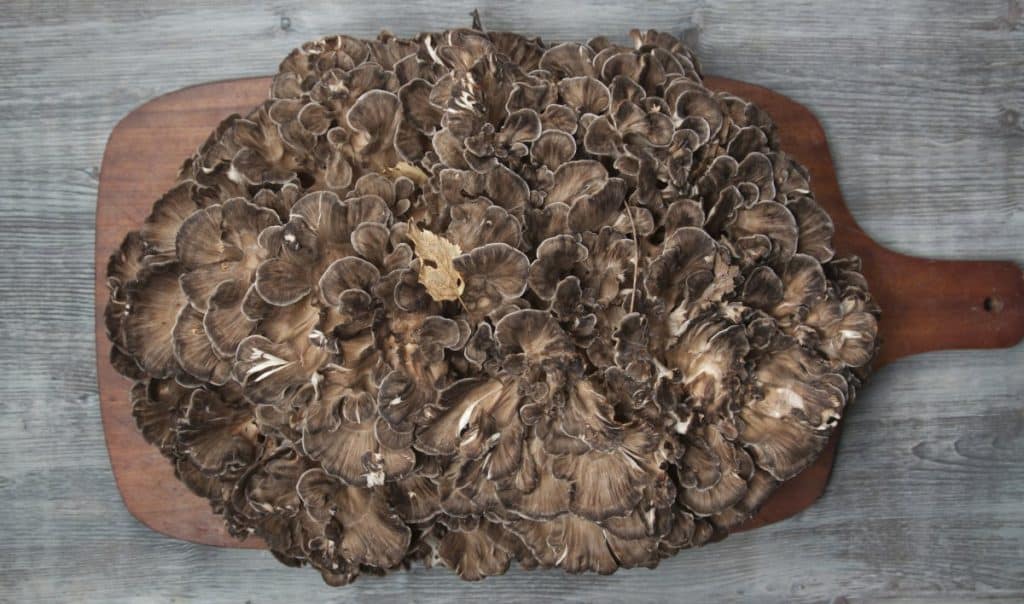
Tips for Adding Maitake Mushrooms to Your Diet
Now that we’ve looked at the impressive health benefits of Maitake mushrooms, the next question is, “How do you include maitake mushrooms in your daily meals?”
Fortunately, fresh maitake mushrooms are very versatile, and you can cook them in several ways, including:
1. Stir-Fried
A simple and tasty way to incorporate Maitake mushrooms into your diet is by adding them to a stir-fry. Maitake mushrooms have an earthy flavor that pairs beautifully with Asian-inspired dishes.
Simply slice them up and throw them into a sizzling pan with veggies, some protein and your favorite stir-fry sauce.
2. Sauteed
A more straightforward approach, and our favorite way to cook mushrooms, is to sauté your maitake mushrooms in olive oil or butter with a touch of garlic.
Season with a pinch of salt and pepper, and serve them as a side dish or pile them on toast or your favorite meat for a delicious treat.
3. Boiled
The rich, umami flavor of maitake mushrooms adds depth to soups and stews, and you can use them in everything from creamy mushroom soup to a hearty beef stew.
Simply chop them up and toss them into the pot, but remember to add them close to the end of the cooking time as they do not need to be cooked for long.
4. Grilled
The meaty texture of maitake mushrooms makes them a great meat substitute for vegetarians and vegans, especially when grilled.
A fabulous way to use them on the grill is to marinate them with your favorite sauce, place them on a skewer and grill them over hot coals.
5. Baked
For a unique and nutritious alternative to regular French fries, try making maitake fries.
To do this, slice your maitake mushrooms into thin strips, dip them in batter, and bake them until they’re delightfully crispy.
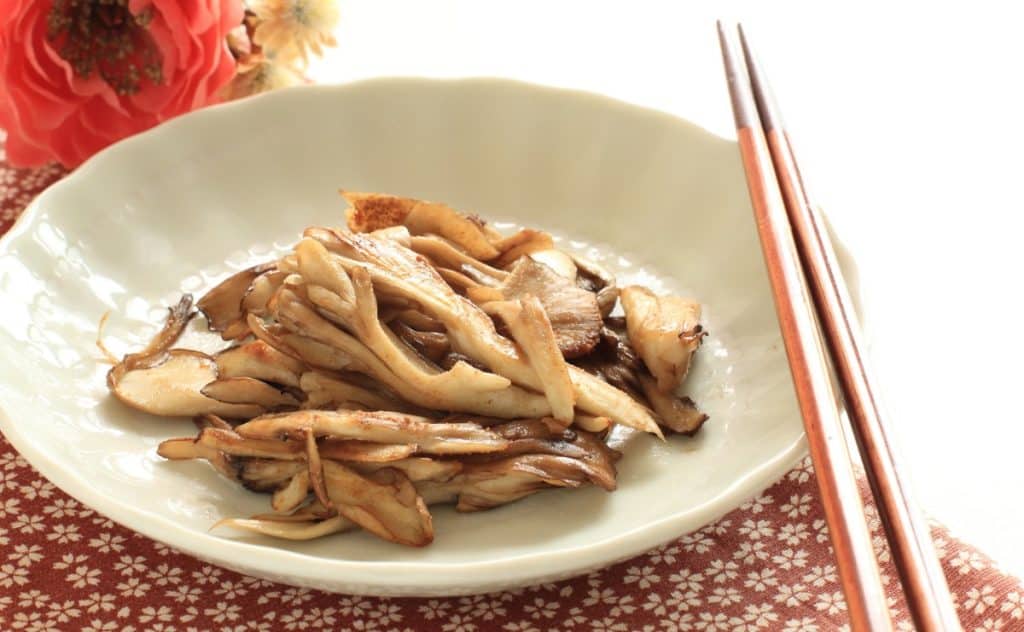
Maitake Mushroom Supplements
If you’re not a fan of the taste or texture of mushrooms, maitake mushroom supplements, known for their immune-boosting properties, could be a good choice for you.
They contain all the bioactive compounds found in fresh maitake mushrooms, and you can choose from several different supplements.
When deciding which maitake supplement is right for you, consider your lifestyle and personal preferences. If you like convenience and precise dosing, capsules, gummies and liquid extracts might be the best bet.
And, if you enjoy mixing things into your meals or beverages, powders, blends or infused products may suit you better.
Let’s have a look at the options in a little more detail.
Capsules
Capsules are one of the most common maitake supplements consumed.
They usually contain concentrated powdered maitake mushroom extract and are popular because they’re exceptionally convenient.
You can easily monitor your daily intake, and they’re easy to take and portable, making them an excellent choice for people on the go.
Powder
Maitake mushroom powder comes in two forms. The first consists of dried and powdered maitake mushrooms and provides the same benefits as eating fresh maitake mushrooms.
The second is powdered maitake extract. This powder is more concentrated and thus more potent as it is made by drying liquid maitake extract. This is the powder that you’ll most often find in maitake capsules.
Both types of mushroom powder provide flexibility and are great for mixing into smoothies, soups or stews. You can also sprinkle them on your yogurt or cereal.
Tinctures
Tinctures are concentrated liquid extracts, so you only need a few drops daily.
They’re easy to absorb and usually offer benefits quicker than other supplement types. If you place a few drops underneath your tongue, the tincture will absorb directly into your bloodstream.
And if you don’t enjoy the taste of tincture, you can also add a few drops to your favorite beverage or meal.
Tea and Coffee
With the growth in popularity of medicinal mushrooms, a few companies have introduced maitake mushroom tea and coffee blends.
These are generally made using dried and powdered mushrooms and provide an easy and tasty way to enjoy the benefits of maitake mushrooms.
Gummies
If you enjoy the convenience of capsules but don’t like taking tablets, consider maitake gummies as an alternative.
They come in various flavors, and you can choose from plain maitake gummies or gummies with a blend of maitakes and other medicinal mushrooms like reishi, lion’s mane and cordyceps.
Risks and Side Effects of Consuming Maitake Mushrooms
For thousands of years, people have used maitake mushrooms for culinary and medicinal purposes, and they’re generally considered safe to consume.
But, some people have reported allergic reactions or digestive discomfort after eating maitake mushrooms.
So, if you’re trying maitake mushrooms for the first time, it’s best to start with a small amount and monitor for any adverse reactions.
Who should not take maitake mushrooms?
While maitake mushrooms can offer numerous health benefits, they may have adverse effects for people on certain medications or with specific conditions.
Be mindful of your individual circumstances and consult with a healthcare provider, especially if you fall into any of the categories below.
-
- Using Blood-Thinning Medications – If you’re taking blood-thinning medications like Warfarin or Aspirin, be cautious with maitake supplements. Maitake mushrooms may have blood-thinning properties, and combining them with blood-thinning medications could increase the risk of bleeding.
- Using Blood-Thinning Medications – If you’re taking blood-thinning medications like Warfarin or Aspirin, be cautious with maitake supplements. Maitake mushrooms may have blood-thinning properties, and combining them with blood-thinning medications could increase the risk of bleeding.
-
- Using Diabetes Medications – Maitake mushrooms can help regulate blood sugar levels. If you’re on diabetes medication, monitor your blood sugar closely when incorporating maitake into your diet, as you may need to adjust your dose accordingly.
- Using Diabetes Medications – Maitake mushrooms can help regulate blood sugar levels. If you’re on diabetes medication, monitor your blood sugar closely when incorporating maitake into your diet, as you may need to adjust your dose accordingly.
-
- Taking Immunosuppressants – Maitake’s immune-boosting properties might interfere with immunosuppressant medications, often prescribed after organ transplants or for autoimmune conditions. If you’re on immunosuppressants, consult your healthcare provider before adding Maitake to your diet.
- Taking Immunosuppressants – Maitake’s immune-boosting properties might interfere with immunosuppressant medications, often prescribed after organ transplants or for autoimmune conditions. If you’re on immunosuppressants, consult your healthcare provider before adding Maitake to your diet.
-
- Having Planned Surgery – Due to their potential blood-thinning effects, it’s advisable to stop taking maitake supplements at least two weeks before surgery to reduce the risk of excessive bleeding.
- Having Planned Surgery – Due to their potential blood-thinning effects, it’s advisable to stop taking maitake supplements at least two weeks before surgery to reduce the risk of excessive bleeding.
-
- Pregnant or Nursing – Limited research exists on the safety of maitake supplements during pregnancy and breastfeeding. It’s best to err on the side of caution and consult with a healthcare professional before adding maitake mushrooms to your diet.
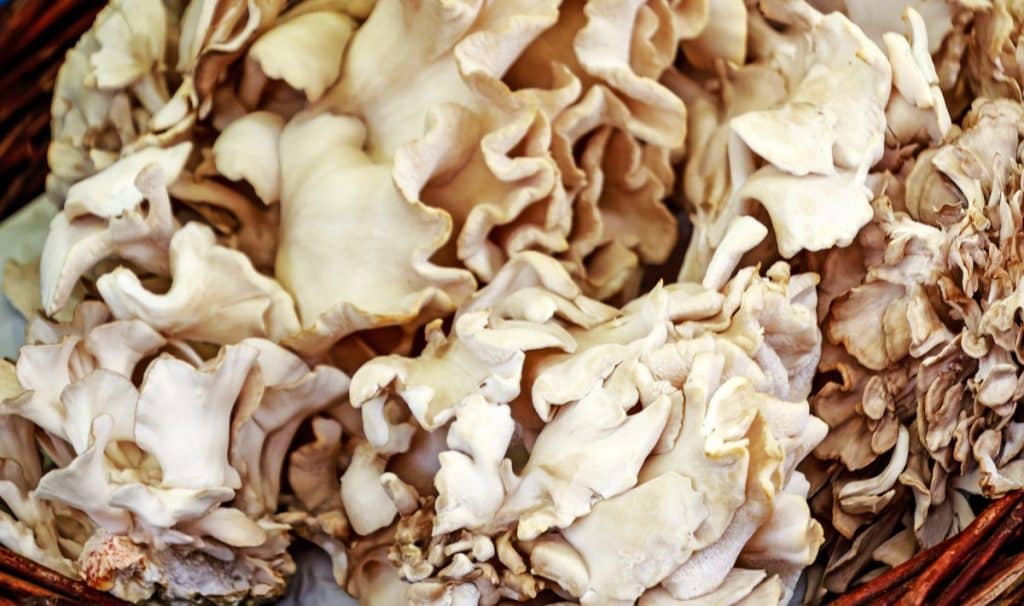
Final Thoughts
Maitake mushrooms are adaptogenic functional mushrooms that can boost your immune system, help in the fight against cancer, balance blood sugar levels, and so much more.
You can enjoy them fresh, and they’re very versatile in the kitchen. And if cooking isn’t your thing, maitake mushroom supplements will give you all their benefits.
But, if you take medications or have health concerns, it’s best to talk to a healthcare expert before you add them to your daily routine.
Another wonderful thing about maitake mushrooms is the fact that you can grow maitake mushrooms at home indoors and outdoors, and it’s easier than you may think.
To learn more about mushrooms, visit our Mushroom Education Hub, and if you’re interested in learning to grow mushrooms, our Mushroom Growing Hub has loads of resources to help you.
